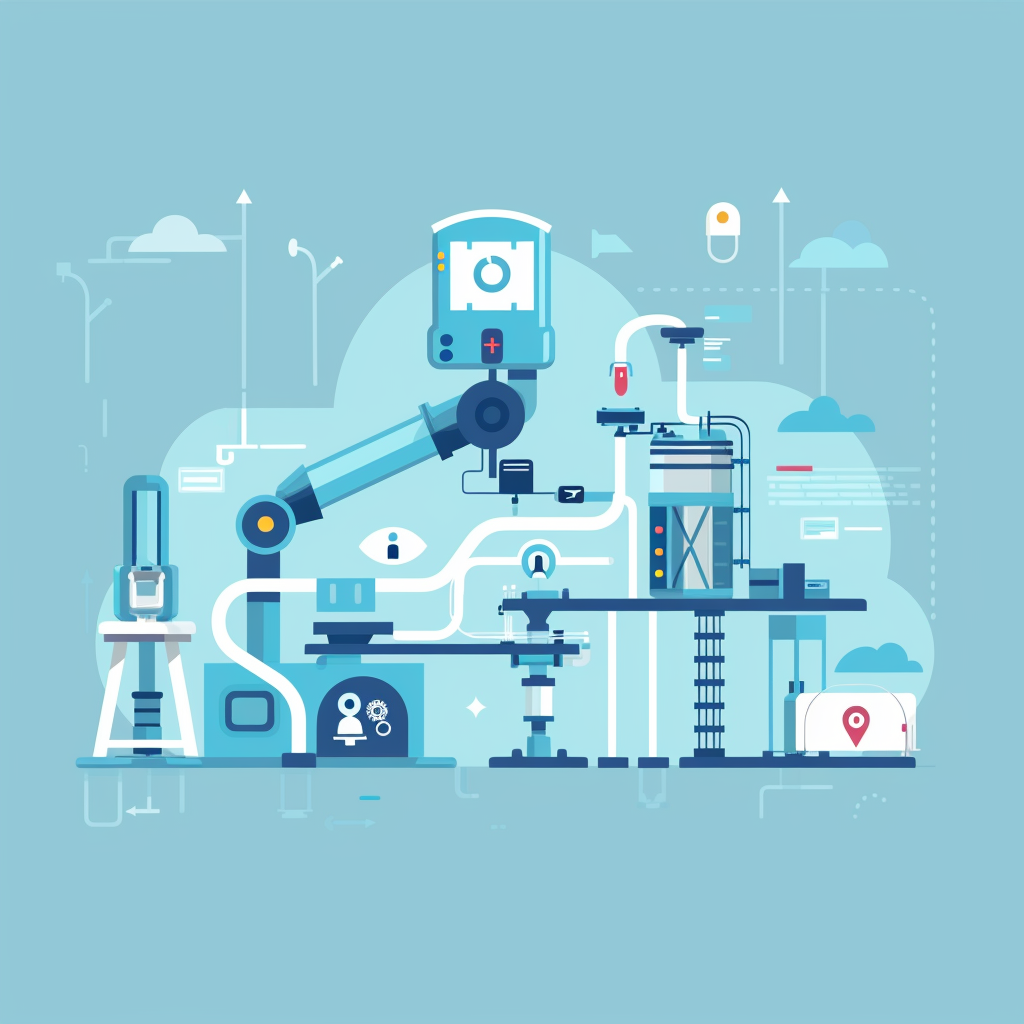Over the past few years, artificial intelligence has become a major contributor to the dynamic landscape of technological advancements. From business automation and e-commerce AI tools to personalized recommendations and fraud detection algorithms, companies like Alibaba, Amazon, and many others have embraced Artificial Intelligence (AI) to streamline their operations.
Following their example, smaller businesses across various industries have also started integrating AI into their processes. As AI continues to evolve, it is expected that more and more businesses will adopt this technology to drive innovation and improve efficiency in their work.
In this article, we’ll look at the latest AI in e-commerce examples from Alibaba, Amazon, and other industry leaders and highlight how they utilize artificial intelligence in e-commerce to maintain a competitive edge. Read on to learn more.
Top 7 real-life examples of how e-commerce companies use artificial intelligence
1. Alibaba

Alibaba stands out among e-commerce companies using AI. Why? First of all, Alibaba is one of the largest e-commerce platforms in the world, handling billions of transactions every year. Therefore, many business owners are wondering, “How does Alibaba use artificial intelligence?”. The company has integrated AI into every aspect of its business, from customer service to logistics.
For starters, Alibaba uses artificial intelligence in e-commerce. They developed an AI-powered virtual assistant called AliMe. It provides customers with personalized shopping recommendations based on their browsing history and preferences. However, the company also uses AI algorithms to analyze customer data and behavior patterns to improve its search and recommendation systems.
2. Amazon

Amazon is yet another e-commerce giant that falls under the umbrella of companies using artificial intelligence. How does Amazon use AI? In many ways. First, the company uses AI through its recommendation system, just like Alibaba. By analyzing customer data, including search history and purchase patterns, Amazon can suggest personalized product recommendations to its customers.
Additionally, Amazon utilizes AI in its logistics operations. Since they have thousands of orders daily and large warehouses to handle, the company relies on AI to optimize its supply chain management and streamline the delivery process. Not surprisingly, according to recent research by the IHL Group, artificial intelligence could bring Amazon and Walmart more than $580 billion in additional revenue by 2029.
3. Walmart

Walmart is another excellent example of how AI can be used effectively in business, especially in e-commerce. At Walmart, they know exactly how to use artificial intelligence to make shopping better and increase their profits. The corporation uses AI and ML-based inventory management systems to accurately forecast demand, reduce inventory costs, and improve operational efficiency. Yet, there’s more.
Walmart also uses natural language processing (NLP) for voice shopping. This AI technology allows customers to place orders through voice commands, making the shopping experience more convenient and efficient. NLP can interpret the request, identify items using product name entity recognition, and predict brand preferences using past purchase information.
4. Shopify
Shopify is a leading e-commerce platform enabling businesses to create online stores and sell products. This company can provide us with many AI application examples. Like many companies in their area, Shopify utilizes artificial intelligence for personalized product recommendations and better textual and visual searches. Thanks to the product discovery features powered by AI, Shopify experienced a 15% boost in sales.
In addition to AI-driven search and recommendations, Shopify can show us other creative AI examples, like AI-powered product tagging. This e-commerce pioneer employs AI algorithms to generate relevant product tags and keywords automatically based on their descriptions and images. This saves sellers from manually categorizing and tagging their products, saving them time and effort and resulting in a more organized and faster process.
5. Asos

One of the biggest fashion retailers, Asos, is using AI in e-commerce to personalize the online shopping experience for its customers. Since the platform sells over 85,000 products from over 850 brands, it needs advanced technology to recommend relevant items to each individual shopper.
As a result, the Asos tech team created an AI-powered Style Match feature. It helps customers to find needed items by uploading a reference image. This feature matches the color and style of the uploaded photo with the products available on the Asos platform, providing the customer with a curated list of options.
6. Zalando

Being one of the biggest e-commerce platforms in Europe, Zalando also understands the importance of AI use in online shopping. That’s why they launched a fashion assistant powered by OpenAI’s ChatGPT. From now on, customers can use e-commerce artificial intelligence to ask fashion-related queries in their own words. All to make it easier to explore Zalando’s extensive product selection.
Take this scenario: a customer asks, “What should I wear for a wedding in Santorini in July?”. Zalando’s AI-powered fashion assistant handles the request, understanding that this is a formal occasion while also taking into account the weather conditions in Santorini during July. As a result, it provides a detailed written description that includes suggestions for what to wear based on these factors.
7. Duolingo

Last but not least is EdTech giant Duolingo. Although this program has nothing to do with e-commerce, it can provide insightful artificial intelligence examples. To begin with, Duolingo is using AI to create lessons faster.
Duolingo’s team is generating a vast amount of content for lessons with the help of artificial intelligence. The Large Language Model behind their operations can be trained with existing content and then generate new lessons based on that foundation. Thus, Duolingo’s team can delve deeper into the CEFR scale to teach more advanced concepts.
In addition, Duolingo uses AI to ensure that the exercises that appear on the platform are tailored to your individual skills and limitations, providing the ideal degree of difficulty. By analyzing data from millions of learners, the AI algorithms can identify the areas where a user may struggle and provide targeted exercises to improve those specific skills.
Bottom line
In the era of technological advancement, it is clear that AI is not just a passing trend but a matter of survival. Small and large businesses must integrate AI to thrive in the digital age.
Alibaba, Amazon, Walmart, and other companies’ success stories serve as examples for other businesses to embrace and use AI’s potential in new ways — all to stay competitive and meet the ever-changing demands of customers.






